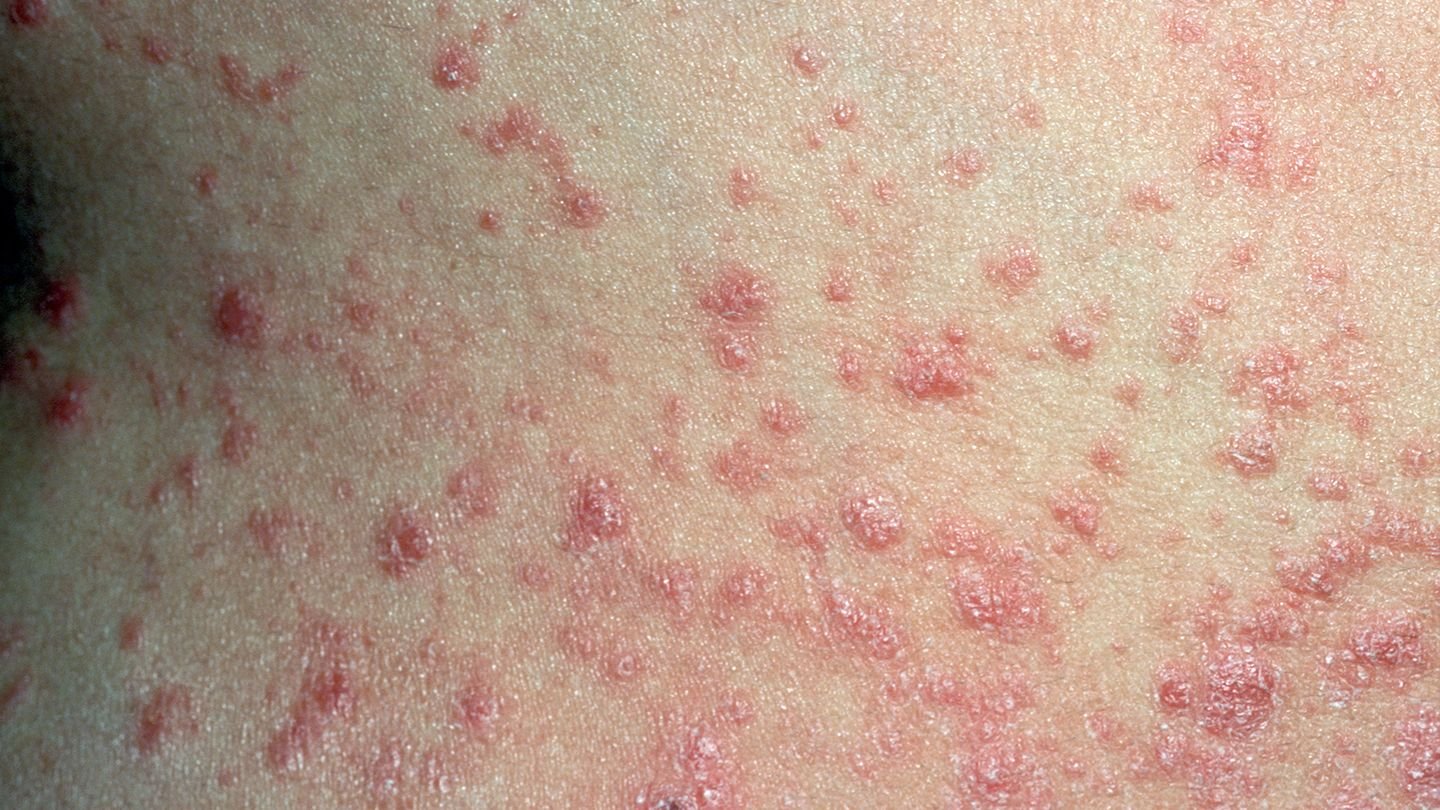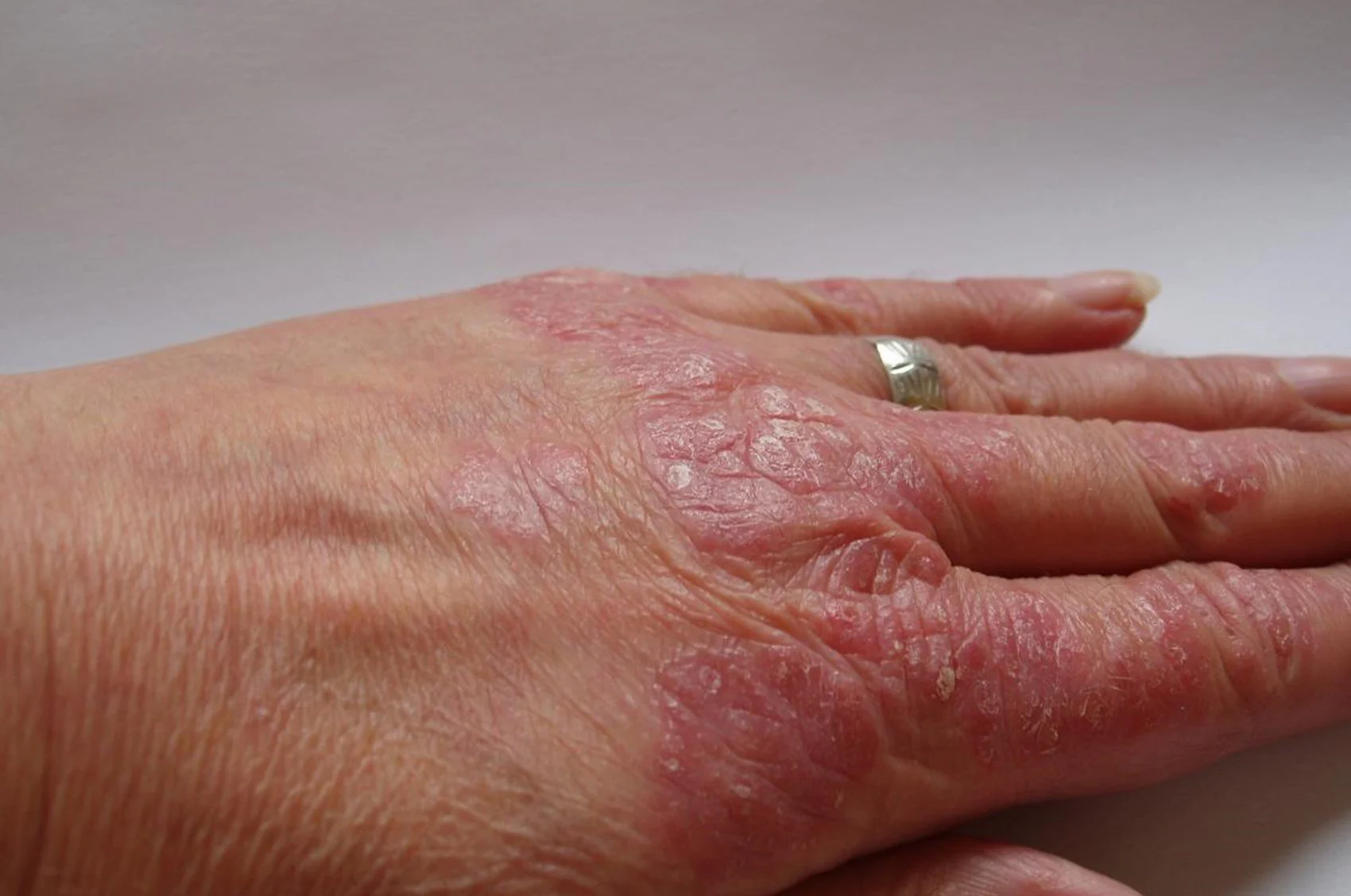Psoriasis: Variations & How to Manage this Skin Condition
There are many types of psoriasis, from plaque psoriasis to guttate psoriasis. How can each variation of psoriasis be treated to make everyday life more manageable?
5 minute read Did you know that your skin is the largest organ in the human body? Now, imagine having to live with a condition where your skin constantly causes you discomfort, self-consciousness, and frustration. This is the reality of an estimated 1.3%-2.2% of the UK population who suffer from a chronic autoimmune skin condition called psoriasis.
Psoriasis affects more people than you think, and it can appear in different forms. Let's embark on a journey through the complex landscape of psoriasis, exploring its different variations, who it affects, and the treatments available to soothe the fiery patches on the skin.
Types of psoriasis
There are many forms of psoriasis. Let’s discuss each of the following types:
Plaque psoriasis
Scalp psoriasis
Guttate psoriasis
Nail psoriasis
Psoriasis on face
Pustular psoriasis
Genital psoriasis
Palmoplantar psoriasis
Plaque psoriasis
One of the most common forms of psoriasis is plaque psoriasis. This causes the skin to become raised with red patches, covered with a silvery-white coating of dead skin cells. These are known as plaques and can appear on any part of the body, but they are most commonly found on the elbows, knees, and lower back.
Scalp psoriasis
You can get psoriasis on your head too. This type of Psoriasis includes the formation of red, itchy scaly patches on the scalp, that can also extend onto the forehead, neck and behind the ears.
Not only does scalp psoriasis cause physical discomfort, but it can also lead to emotional turmoil. The physical signs of this condition are visible and may be challenging to try and cover-up.
Guttate psoriasis
Another variation of psoriasis is guttate psoriasis, which is more common in young adults and children. This form differs from others as instead of larger plaques forming, much smaller, droplet-like lesions form across the skin. Guttate psoriasis is often seen following a streptococcal infection.
Nail psoriasis
You can also get psoriasis on the nails. Nail psoriasis can cause changes in the nail colour, including pitting, and cause them to become thicker.
Not only does this look unpleasant, but it can also be very painful and cause functional impairment. Everyday activities can become difficult for those using their hands with nail psoriasis.
Psoriasis on face
The face is arguably the most visible and noticeable part of the body. Therefore, individuals suffering from psoriasis on the face experience unique challenges due to its visibility, and sensitivity of facial skin. Red, scaly patches can appear on the forehead, cheeks, and around the eyes and mouth.
Facial psoriasis can cause discomfort, such as itching, and impact an individual's self-esteem. Since facial skin is more sensitive, be cautious when applying body treatments for psoriasis as they may be too harsh and cause irritation. This is why personalised healthcare is advised to treat psoriasis.
Pustular psoriasis
Pustular psoriasis is a rare, severe form of psoriasis. Symptoms include the formation of large pus-filled blisters or pustules on the skin. The affected areas are often red and inflamed.
Episodes of pustular psoriasis are often triggered by stress, infections and some medications. Many people also report experiencing fever, chills and feeling fatigued.
Genital psoriasis
Genital psoriasis affects approximately 63% of people with psoriasis at least once in their lifetime. It can cause great discomfort in the genital region and as a result, have a negative impact on intimate relationships. People may find it embarrassing to talk about, but it needs careful management to ease its symptoms.
Palmoplantar psoriasis
Palmoplantar psoriasis involves the soles of the feet and the palms of the hands, respectively. These areas, subjected to constant friction and pressure, pose unique challenges for treatment. Moisturisers, keratolytic agents, and avoiding irritating footwear are part of the holistic approach to managing these specific manifestations of psoriasis.
What causes psoriasis?
So, what cases psoriasis?
No one knows for sure, but it is recognised as an autoimmune condition. Research shows that genetics play an important role in developing Psoriasis, but that does not mean everyone with a family history will get it.
Your environment also plays an important role in the risk factors that you may get psoriasis. Certain triggers such as stress, infections, or even certain medications can also exacerbate or initiate psoriasis episodes.
Treatments for psoriasis
As psoriasis is such a diverse condition, so is its treatment. Everyone’s treatment plan will look different, due to the type of psoriasis they are suffering from and how severe it is.
Topical products
Usually, treatment will start with topical products such as corticosteroids and vitamin D. These help to reduce inflammation and slow down excessive skin cell turnover.
Phototherapy
More severe psoriasis can be treated with, phototherapy (light therapy). Exposure to ultraviolet B (UVB) light can help to suppress the overactivity of the immune system.
However, this may not be a suitable treatment for everyone as all factors need to be taken into consideration, and some people may experience increased sun sensitivity. It’s important to then therefore weigh up the risks versus the benefits.
Biologic medicines
Biologic drugs have also been developed in recent years to revolutionise treatment for psoriasis. These medicines can accurately target parts of the immune system and turn down the inflammatory response. This is an alternative option for people who may not respond to other first-line treatments.
Shampoos
For those suffering from scalp psoriasis, shampoo becomes helpful to manage the condition if used regularly. These are specialised shampoos which contain ingredients such as coal tar, or salicylic acid. These help to reduce the itching and scaling on the scalp caused by psoriasis.
Is there a permanent cure for psoriasis?
Unfortunately, there is no permanent cure for psoriasis is currently available. Treatment also differs from one individual to another, there is no one-size-fits-all approach for psoriasis.
However, lifestyle changes can be made. There are many steps those suffering from psoriasis can take to help manage their condition and improve the quality of life. These include eating a healthy diet and participating in regular exercise.
As advances in research and understanding of genetics occur, it is hoped that more effective treatments will be discovered.




